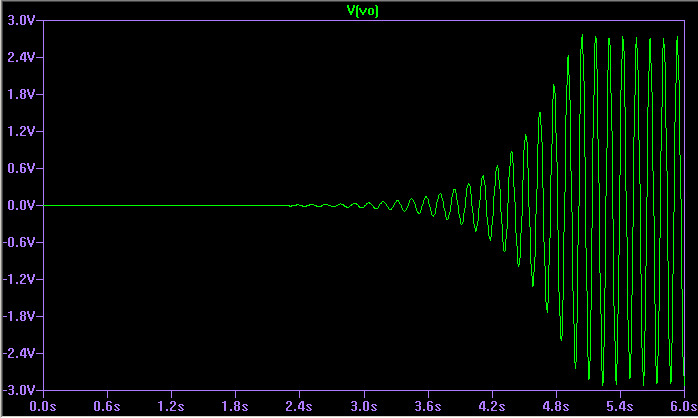Low Frequency Oscillator
Description:
A low frequency test oscillator for testing tone controls and experimenting.
Circuit Notes:
The circuit is a standard wien bridge oscillator using a single bipolar transistor as the active element. When power is applied regenerative feedback is applied via C2 from collector to base of the transistor. The timing components, R1, R2, C1 and C3 dictate the oscillation frequency. In use preset RV1 is adjusted so that oscillation just begins. With values shown full amplitude oscillation takes about 4.8 seconds (see diagram below).
Frequency Calculation
This oscillator is designed and simulated on LTSpice IV. Once simulated click the "probe" cursor on the ouput wire "Vo", the above waveform is produced. To calculate the frequency, place your mouse on the graph where oscillations have reached full amplitude and draw a rectangle, ensuring maximum and minimum apmplitude is enclosed within the rectangle. The diagram below shows such a zoomed portion of the output waveform, starting around 5.6 seconds into the simulation.
To add cursors left click on the name of the output waveform, this is called "V(vo)". A single cursor is added to the graph which can be moved with the mouse or keyboard arrows. Now right click the mouse on the Vvo waveform. In the window that appears click on the attached cursor menu and change to "1st & 2nd". Now two cursors will be visable and controllable. Make sure both cursors pass through the zero volt horizontal meridian and measure one output cycle. A sub window allows you to read the value as shown above, for this oscillator the time for one cycle is 127.2ms and frequency a little under 8Hz.
Content sourced from Zen Schematics
Circuit: Andy Collinson











